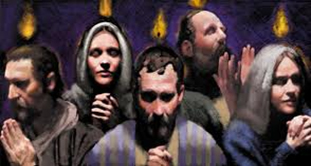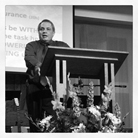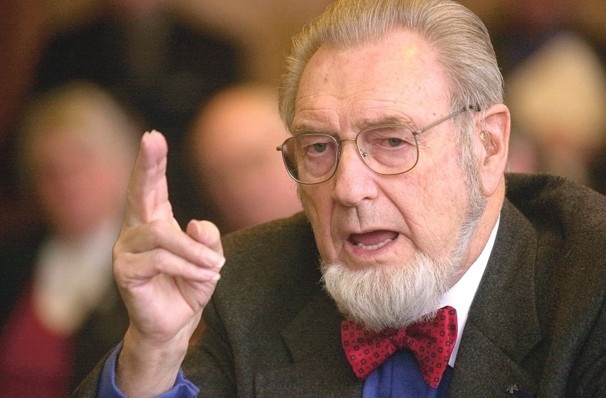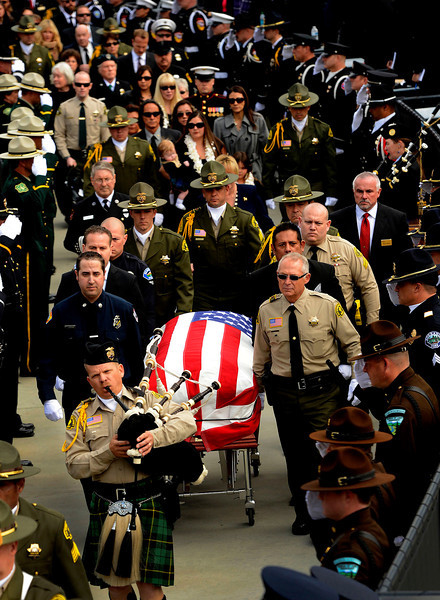“God is spirit, and his worshipers must worship in spirit and in truth.” (John 4:24, a text that, among other things, should make us cautious about external show in worship)
1 Corinthians 14:26 is a foundational scripture for worship: “When you come together [‘sunerchomai’ – a technical term for the church gathering), …all [including singing] must be done for the strengthening of the church.”
“Let the word of Christ dwell in you richly, in all wisdom teaching and admonishing each other with psalms, hymns and spiritual songs…” (Colossians 3:16—my rather literal translation of it)
First, let’s agree and admit: “God’s worship tastes are broader than yours or mine.” So what I like or what I prefer is not the issue. The issues are:
• Is our worship acceptable to God—the kind of worship he seeks?
• Is it spiritually strengthening to the congregation?
• If the occasion is evangelistic, is the music the best for the occasion?
• Does it make the church truly an engaged, worshipping body?
• Does it fulfill biblical teaching and commands? And (in matters not addressed in the Bible) does it fulfill biblical principles?
Here are five problems I have with some of the “contemporary worship” I observe (and I do benefit from much of it):
1. Platform Performance and a Spectator Audience rather than a Participating Congregation led by the Worship Team [* see addendum]
Does the team in front truly lead the people in worshipping God in spirit and in truth (John 4:24)? Or does it perform before them? (Does the show go right on even if watchers are not participating?) Perhaps the volume or style of the song makes participatory singing difficult.
A 20-something couple attended a contemporary worship service and found the audience standing for a long song time but most were noticeably not singing. Worse, this couple had taken a young, non-Christian friend to this service, and she was quite puzzled. “Why do they stand so long? Why aren’t they singing?” (The couple wrote me about their experience.)
This may be “contemporary”, but “worship” it ain’t! Likewise, “leading worship” is more than coaxing the audience to clap their hands, etc., along the lines of some older worship styles. Good worship leading is an art. It creates a “symbiotic” situation, where leaders and congregation are ushered freely and together into the spirituality of the worship experience.
2. Use of Technology and Special Effects that attract attention to themselves rather than to Jesus (or even hinder attraction to Jesus)
I tried to worship last year at a gathering that displayed, in my opinion, many distracting special effects—especially some little spotlight nuisances that sent their beams wandering through the audience during songs. How does this build the spirituality of the song time? What are we trying to prove?
Technology (lighting, amplification, projections, special effects) is “neutral”, neither commanded nor forbidden in the Bible. The use of technology therefore must be judged by its positive or negative effect.
The reformer John Calvin’s advice is helpful when considering things added to the worship of God that are not specified in the Bible. He speaks against “useless elegance and fruitless extravagance” and favors a decorum that fits “the sacred mysteries” and is “appropriate adornment” for the exercise of devotion. “Ceremonies…ought to lead us straight to Christ” (Institutes of the Christian Religion, Book 4, Chapter 10, Section 29, emphasis mine). So we ask, “Does this particular use of technology lead us straight to Christ or not? Or does it even distract us from Christ?”
3. Selection of Songs and Style that doesn’t fit the context (the people who are there and the purpose of the gathering) [* see addendum]
As a pastor for 44 years, I’ve learned the art of accepting people “where they are” and leading them from there to “where they ought to be”. In music, this includes broadening their tastes and appreciation, and doing so with a sensitive spirit.
This requires “gradualism”, building upon the ground they stand on, slowly expanding their grasp of music that will then build them up spiritually. You know how a cat acts when you take him suddenly from familiar surroundings to a strange place? You better be wearing gloves! We wouldn’t expect old-time gospel songs to be effective at a gathering of unchurched youth. Likewise, if a praise team is before an older crowd or a generationally mixed crowd and hits them with a style that narrowly fits a particular youthful stratum, then broader musical appreciation and spiritual growth are aborted.
And remember, the elderly folk aren’t into standing for 20+ minutes! Also, please pick songs so most of the people know most of the songs.
4. “Sloppy Agape” and the “Slurpization of God”
Some contemporary songs convey an erotic (romantic, but not in the negative sense of “eroticism”) rather than an agapic view of love (1 Corinthians 13). The agape love of God reaches down to us in our distress and does what is needed (John 3:16). It motivates us to agapic love for others (1 John 4:11). It’s not about getting the feeling that God has feelings of love for us.
I attended a church’s song service last year where the lyrics of one popular song said Heaven will come “like a sloppy wet kiss”! No wonder some talk of men (males) not caring for modern worship. Women either.
All worship leaders should study the transcendence, holiness and majesty of God and ponder their practical application to worship.
5. Weak or Wrong Teaching in the Song Lyrics
Singing is a time to teach and admonish with the truth (Colossians 3:16).
I’m delighted to see more contemporary songs focusing on our social duties as Christians. This has been a blind spot in contemporary music. “God of The City” is a top example of this development (O that it were more singable!).
But some songs go beyond this with themes and lyrics that are “post-millennial” (Jesus will return after the church establishes his kingdom on earth). Few Christians I know really believe this, but the songs they sometimes sing convey it anyhow. (Let it be said that the old “gospel songs” were sometimes doctrinally weak or wrong as well.)
I close with the powerful words of the still-relevant song, “Sing Praise to God Who Reigns Above” by Johann J. Schutz (1675):
Thus all my toilsome way along I sing aloud Thy praises,
That men may hear the grateful song my voice unwearied raises.
Be joyful in the Lord, my heart. Both soul and body bear your part.
To God all praise and glory!
Addendum:
* Note: Since first writing the above, I’ve thought a lot about these points and how we can avoid error and at the same time appropriately accommodate some of the practices I’d rather not see in worship gatherings.
When I was a teen, “Youth For Christ” was the place to take your non-Christian friends (perhaps more than taking them to your church for their first “Gospel” experience). YFC rallies were “platform performances” where the audience was more in an observance mode than participation. Everything (including technology good for the times) was geared to the teens and prayerfully intended to lead to some conversions. (Read Billy Graham’s autobiography and see how this was the vision of YFC.)
We didn’t look on YFC as primarily a place for worship or spiritual growth, though those did take place. We looked for evangelism, through song, drama, message and just a really good program. I was trained as an evangelism counselor.
I suggest that some, if not many, “contemporary worship” experiences are like YFC during my teen years. They are striving to reach a generation for Christ, and many are doing a pretty good job of it.
I think we can make a New Testament distinction between a gathering geared for conversion and a gathering for worship and growth. Isn’t this distinction found at the very beginning of the Christian Church? “Those who accepted his message were baptized” [the evangelistic gathering], and “they devoted themselves to the apostles’ teaching and to the fellowship, to the breaking of bread [likely the incipient Eucharist] and to prayer” [the worship/growth gatherings]” (Acts 2:41-42 NIV).
That said, and if correct, two results should take place:
1. The Christian and convert attending the evangelistic occasion should not view that occasion as “church” (the gathering of believers for worship, doctrinal instruction and growth) or as a substitute for “church”. We who were so zealous for YFC and its evangelism potential—never would we have thought that the YFC rally was a substitute for our faithful participation in worship at our various local churches. The evangelistic gathering needs to be supplemented by a gathering of believers for doctrinal instruction, prayer, mutual ministry and celebration of the Eucharist.
2. In the observance of the ordinances (sacraments), baptism can be a vital part of the evangelism experience (I would prefer, in this case, that baptisms be connected to a local church). Communion (the Eucharist) on the other hand should NOT be part of this experience as it is an observance intended for the gathered community of worshipping believers. Baptism is tied to evangelism; Communion is tied to spiritual growth. (This may sound like I am making too sharp a distinction between the two kinds of gatherings—not my desire. Growth will take place in an evangelism context, evangelism in a worship context. But the two gatherings have distinct and different intentions.)












